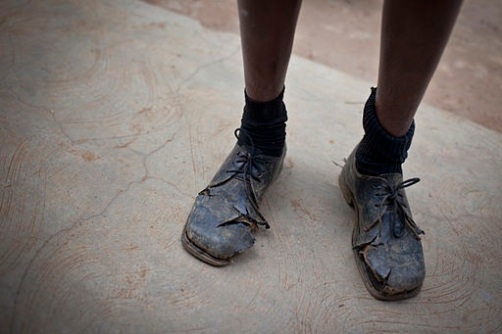Yesterday I described how the advent of new migration had led to the emergence of superdiversity. Today I outline how a combination of state responses to migration and the UK’s de-regulated labour market are combining to bring wide-scale and in some case extreme poverty which might be described as super-exclusion. In this article I bring together data from a recently published re-analysis of the Survey of New Refugees undertaken with Dr Sin Yi Cheung and from two Joseph Rowntree-funded reviews of poverty that will be published in the next few weeks. The first looks at the situation of asylum seekers (with Dr Nando Sigona and Jenny Allsop) and the second economic migrants (with Dr Simon Pemberton and Professor David Robinson).
Poverty is often portrayed as the main reason that people migrate. Of course we know that this is not always the case. Spousal and family migrants come to join an existing migrant and forced migrants seek sanctuary from persecution although they are often depicted as being drawn to industrialised countries by generous levels of welfare. Our recent research shows that the rhetoric around migration offering people a better life may be misplaced and that high levels of poverty are the reality for many living in the UK.
Asylum seekers are totally dependent on asylum support because they are not permitted to work. In 2011-12, an asylum seeking couple with children received 59% of Income Support and a lone parent just 52% – around £36 a week. Evidence shows these levels are so low they struggle to meet everyday needs such as paying for food and transport. Indeed recently a judicial decision confirmed that freezing rates at such low levels was flawed – a review of support rates will now be necessary.
The need for such a review is re-enforced by the re-analysis of the Survey of New Refugees that showed how asylum seekers experienced a range of health and employment problems even 21 months after they gained refugee status. In particular it was clear that the living conditions imposed upon asylum seekers impacted upon their ability to integrate into a new life as refugees. More about integration on Thursday.
But what about economic migrants? They come to work so their economic situation should be better than asylum seekers and refugees. The evidence from our review, which included new analyses of the Labour Force and Understanding Society Surveys, found low-paid migrant workers were more likely to experience poverty than UK nationals in low paid employment. Low-paid, sometimes exploitative work impacted upon their health and well-being and left them more dependent on in-work benefits than the general population. Their vulnerability to poverty was determined by their place in the labour market, lack of employment rights and the precariousness of their work. There was clear evidence that they accessed poor housing, and this and long-hours and the dirty, dangerous and difficult nature of their work impacted upon health. Migrant workers tended to live in areas where resources were already under duress. They were frequently blamed by local people for living in over-crowded conditions and not maintaining properties when they had little choice about where to live. Working long hours migrant workers had little time to socialise or engage in education including language classes which had ramifications for their ability to integrate. Indeed we identified a vicious cycle of poverty that emerged from consequences of de-regulated work and policy responses to anti-migrant sentiment.
So high levels of poverty are evident within the refugee, asylum seeker and economic migrant populations. Yet these are migrant statuses that are likely to be in the more favourable economic positions. JRF has just commissioned a detailed study of destitution which will hopefully shed some light on the lives of those migrants who are not permitted to work and have no access to public funds. Work in progress for the KING migrant integration project is already beginning to show that family and spousal migrants are living in extreme poverty – not permitted to work, attend college and thus learn English, or access benefits leaves them particularly vulnerable to poverty and exploitation.
Given the extent of migration associated with the emergence of superdiversity it is likely, particularly if governments continue to pursue restrictionist welfare policies and support labour market de-regulation, that we will see poverty on a scale not seen for many decades perhaps the emergence of super-exclusion that may affect the lives of generations of migrants. Tomorrow I focus on the experiences of migrant women using the maternity system and show how existing approaches to support and care are having tangible effects on infant and maternal mortality and morbidity.
Professor Jenny Phillimore is Professor of Migration and Superdiversity at the University of Birmingham.
Other useful links:

